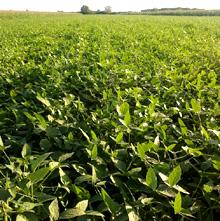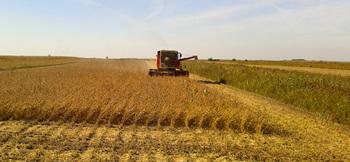Context
Soya has become a central issue for European agriculture and the animal-feed and food-production industries. To compensate for the protein shortfall in animal feeds, the European Union imports around 23 million tonnes of soya bean meal and 12.5 million tonnes of soya beans, mainly from South America. At least two-thirds of these imports consist of genetically modified soya, with the known negative environmental and social consequences this entails. For this reason, obtaining soya from the countries where it is conventionally grown has largely become unpopular with the European manufacturing industry and consumers.
The Danube Soya Initiative (DSI) promotes the cultivation and certification of GMO-free soya in the Danube region in line with set quality standards. In 2013 the agricultural ministers of Croatia, Austria, Serbia, Slovenia, Hungary, Switzerland, Romania, Bosnia and Herzegovina and also Bavaria and Baden-Württemberg signed the Danube Soya Declaration, confirming their intention to promote the cultivation and marketing of high-quality, GMO-free soya in their countries.
Currently, 0.6 million hectares of soya are cultivated in the Danube region. According to estimates, this could rise to between 1.5 and 2.2 million hectares by 2018. With 190,000 hectares, Serbia is the most important grower of GMO-free soya. Up to now, only about 5,000 hectares of land has been given over to soya cultivation in Bosnia and Herzegovina. This country has yet to develop its capacity. Both countries face the challenge of improving their competitiveness in agriculture and in the related upstream and downstream sectors to take full advantage of the opportunities for sustainable economic development presented by the programme.
Objective
In selected parts of the Danube region in Bosnia and Herzegovina and Serbia, there is greater capacity for economically sustainable, environmentally friendly and socially responsible production of GMO-free soya.

